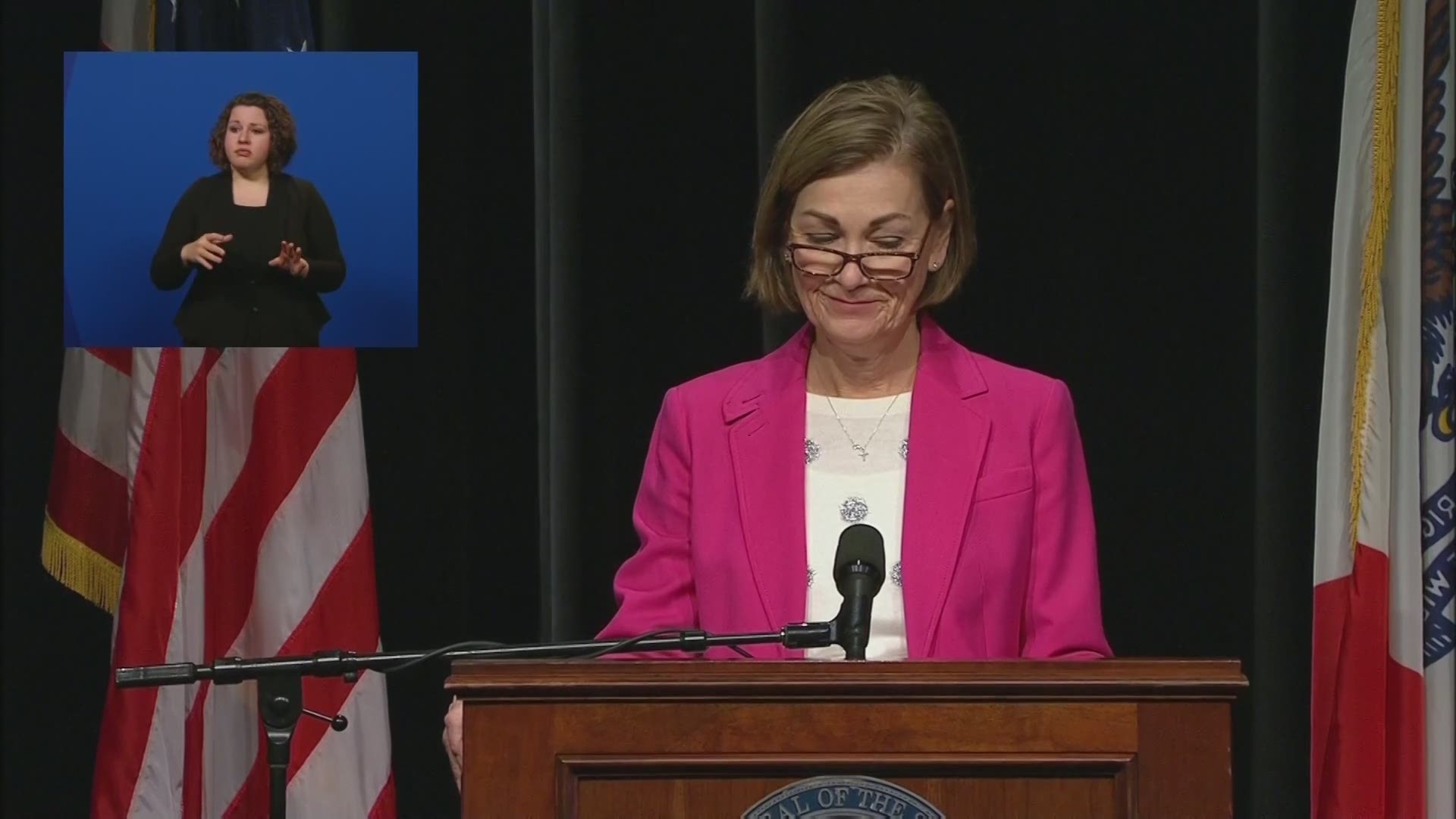A panel of experts that will help decide which groups get the coronavirus vaccine first in Iowa has been holding closed meetings, circumventing the state open meetings law.
Just before the first coronavirus vaccines arrived in the state, the Iowa Department of Public Health convened the Infectious Disease Advisory Council to begin developing recommendations on how to use the vaccine when supplies are limited in the coming weeks and months.
The 25-member panel already met twice this month, discussing which groups of health care workers, essential workers and people at risk for severe COVID-19 illness should be considered higher priorities than others.
Both of those meetings were held in private, without the public or the media able to listen in or ask questions. The brief minutes of the first meeting, Dec. 11, were just released on Dec. 16.
When asked during Wednesday's press conference why the meetings were not open to the public, IDPH Interim Director Kelly Garcia said the issues discussed are sensitive.
"We have been working very hard to balance transparency but with having a free-flow of conversations, and you can imagine the type of conversation that we're having, the group is having together is on prioritization and these are difficult, they're challenging," said Garcia. "The council first and foremost does not meet the definition of what's required under the Open Meetings Act."
Following up on that statement, the health department's spokeswoman sent clarification, noting IDAC "does not meet the definition of a “governmental body” under law. Specifically, IDAC was convened by the Iowa Department of Public Health to provide advice and consultation to the Department’s Director and Medical Director in the development of COVID-19 vaccine distribution guidance and prioritizations. Under the open meetings law, advisory boards and commissions are covered “governmental bodies” only if they are created by the governor, the general assembly, a statute, or an executive order. Iowa Code § 21.2(1)(e), (h)."
Randy Evans with the Iowa Freedom of Information Council told Local 5 IDPH's decision to keep the meetings private is "a short-sighted decision," calling to attention that it might erode the trust of Iowans in state leaders surrounding the pandemic.
"The law doesn't prohibit the meetings from being open," said Evans. "They can be open. Public Health is just choosing not to make them open."
Evans also went on to say Garcia's reasoning to keep the meetings private because sensitive topics are discussed was puzzling.
"They talk about sensitive things during the Iowa Board of Regents meetings, during the Des Moines City Council meetings," Evans said.
Gary Dickey, an attorney with expertise in open records laws and the former general counsel to former Gov. Tom Vilsack, said the reasoning that IDAC was not created under executive order does not stand.
"...the IDAC is clearly the product of an executive order," Dickey said. "The Department apparently interprets “executive order” to mean only gubernatorial executive orders. But, that is not true. As the Iowa Attorney General has explained that an “executive order is commonly defined as a rule or order having the force of law by an executive authority of a government, usually under power granted by constitution or delegated by legislation.” 1993 Iowa Op. Atty. Gen. 59 (Nov. 18, 1993). Thus, executive orders are not limited to the governor."
The council includes experts from the University of Iowa, local and state public health officials, representatives of medical groups and advocates for specific vulnerable populations. It will make recommendations to Garcia, who said she will present them to the governor.
The Associated Press contributed to this report.

